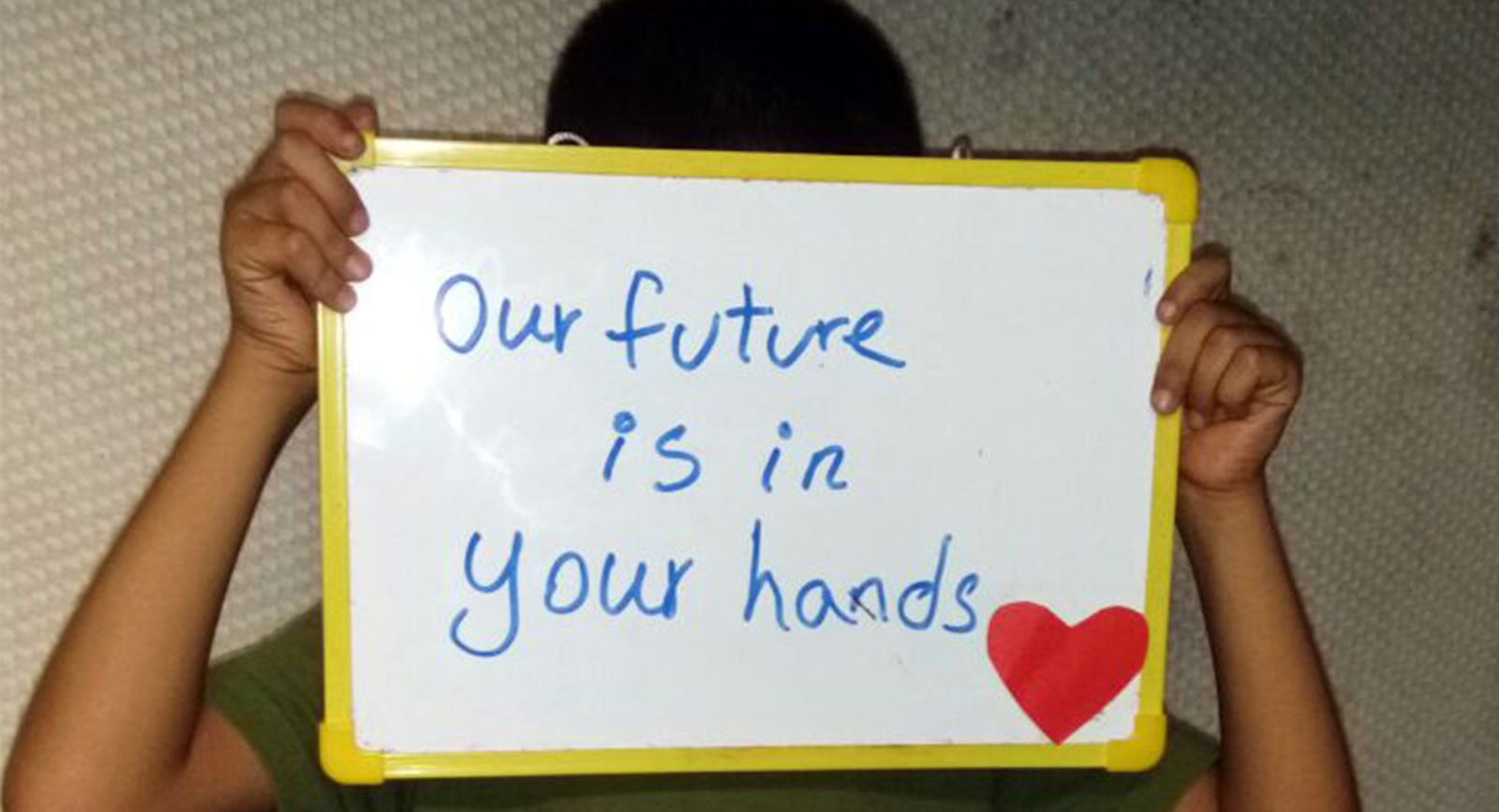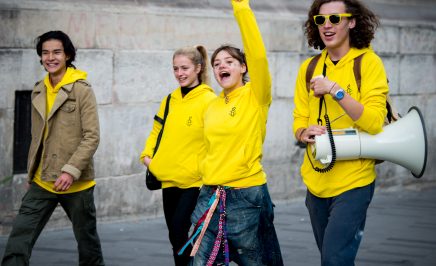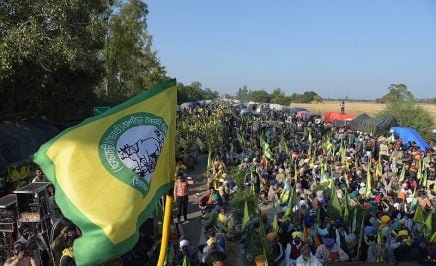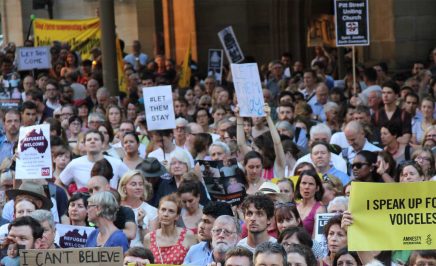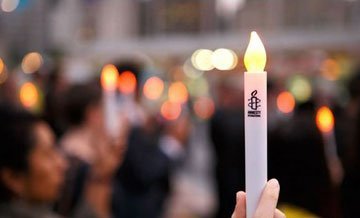Don Dale youth detention centre. Manus. Nauru. Many Australians visited these places in 2016, if only in their imagination.
In reality, a small number of people witnessed firsthand what was happening – or worse, lived through it. Even fewer spoke up about it, but their courage made the difference. Horrors committed every day and long kept out of sight were exposed for everyone to see. It was a wakeup call for Australia as we were named and shamed across the world.
This week, Amnesty International releases its global state of human rights report for 2016. And what a year it was.
Among those on the list are all-too familiar offenders such as North Korea, China, Myanmar, Russia, Saudi Arabia, Sudan and of course Syria. Torture, the use of outlawed weapons such as cluster bombs and chemicals, rape used as a weapon of war, unlawful arrests and detention; and government sanctioned murders of civilians are all sadly documented by Amnesty in our report.
The report documents war crimes committed in at least 23 countries, 22 countries where people were killed for peacefully standing up for human rights and 36 countries forcibly returned people to danger, including Australia.
“In the US, an election campaign marked by discriminatory, misogynist and xenophobic rhetoric, triggered serious concerns about the strength of future US commitments to human rights”
2016 was a year marked by crisis and division, as well as the continued erosion of liberties perpetrated under the guise of state security and countering terrorism. In France, heavy-handed security measures under the prolonged state of emergency included thousands of house searches, as well as travel bans and detentions. In the United Kingdom, a new surveillance law granted significantly increased powers to intelligence and other agencies to invade people’s privacy on a massive scale.
More ominously, politicians seized on fear, stereotyping and nationalist slogans to win votes in the United States, United Kingdom and across Europe. A spike in hate crimes was reported following the UK referendum on European Union membership. In the US, an election campaign marked by discriminatory, misogynist and xenophobic rhetoric, triggered serious concerns about the strength of future US commitments to human rights. Events since the arrival of the Trump administration have further raised the alarm: We can take nothing for granted.
On home soil
Meanwhile in Australia, it was the year in which abuses long carried out in secret were brought out in the open. The harrowing images of abuse in the Northern Territory’s Don Dale juvenile detention facility resulted in Australia being named and shamed around the world.
The publishing of the ‘Nauru files’ and Amnesty International’s research brought global attention to Australia’s abusive policy of offshore detention for refugees and people seeking asylum – a policy the Government implicitly acknowledged to be untenable when it announced an agreement with the United States to resettle some of the people warehoused on Nauru and Manus Island.
These stories crash-landed in public not because the Government wanted people to know about them, but because a few brave people – journalists, former contractors, refugees and children held in detention – spoke up against injustice, often at great risk to themselves.
To its credit, the Government has responded with a commitment to addressing the failures of the youth detention system, which locks up Indigenous kids at a rate 24 times higher than non-Indigenous kids, and to finding solutions to the plight of those stuck on Manus and Nauru.
Also promising is the recent announcement that Australia will finally ratify the Optional Protocol on the Convention Against Torture (OPCAT), which will allow independent inspection of places of detention and act to prevent future abuses.
“The poisonous ‘us vs them’ rallying cries that many politicians have used to gain popular support are fuelling a global backlash against human rights and weakening efforts to address mass atrocities”
Against this progress, however, runs the heavy global current of intolerance, scapegoating and authoritarianism that has swept through democratic societies in the past year. There are undeniably serious grievances driving this trend, but the poisonous ‘us vs them’ rallying cries that many politicians have used to gain popular support are fuelling a global backlash against human rights and weakening efforts to address mass atrocities.
As rhetoric becomes reality, it is more urgent than ever that we stand up against injustice and abuse. In the United States, President Trump has indicated he plans to reintroduce torture practices like waterboarding and to reopen CIA ‘black-site’ prisons. He has also issued executive orders that halt refugee resettlement and attempt to prevent people from majority-Muslim countries from entering the United States.
In response to these outrageous affronts to human rights and basic decency, what has our government said? Nothing.
Silence in the face of bullying and abuse is as good as consent.
Australia is hoping this year to win a seat on the UN Human Rights Council. This is an opportunity for our government to be consistent in terms of human rights and show the leadership that the world needs. We have been a leader in the past – we helped write the Universal Declaration of Human Rights, and we need to show that leadership once more.
Last year over 40 countries passed legislation to protect and defend human rights. They said no to torture, no to the death penalty, no to child marriage, and yes to protecting the most vulnerable in the community.
And ordinary people courageously stood up to protect human rights. People like Australian whistleblower Sandra Bartlett shone a light on the abuses on Nauru and nurse Nurse Khaled Naanaa from Syria saved hundreds of lives. They took a stand to ensure that everyone, everywhere has a fair go, equality, justice and dignity.
Now is the time for our leaders to show the same courage.
